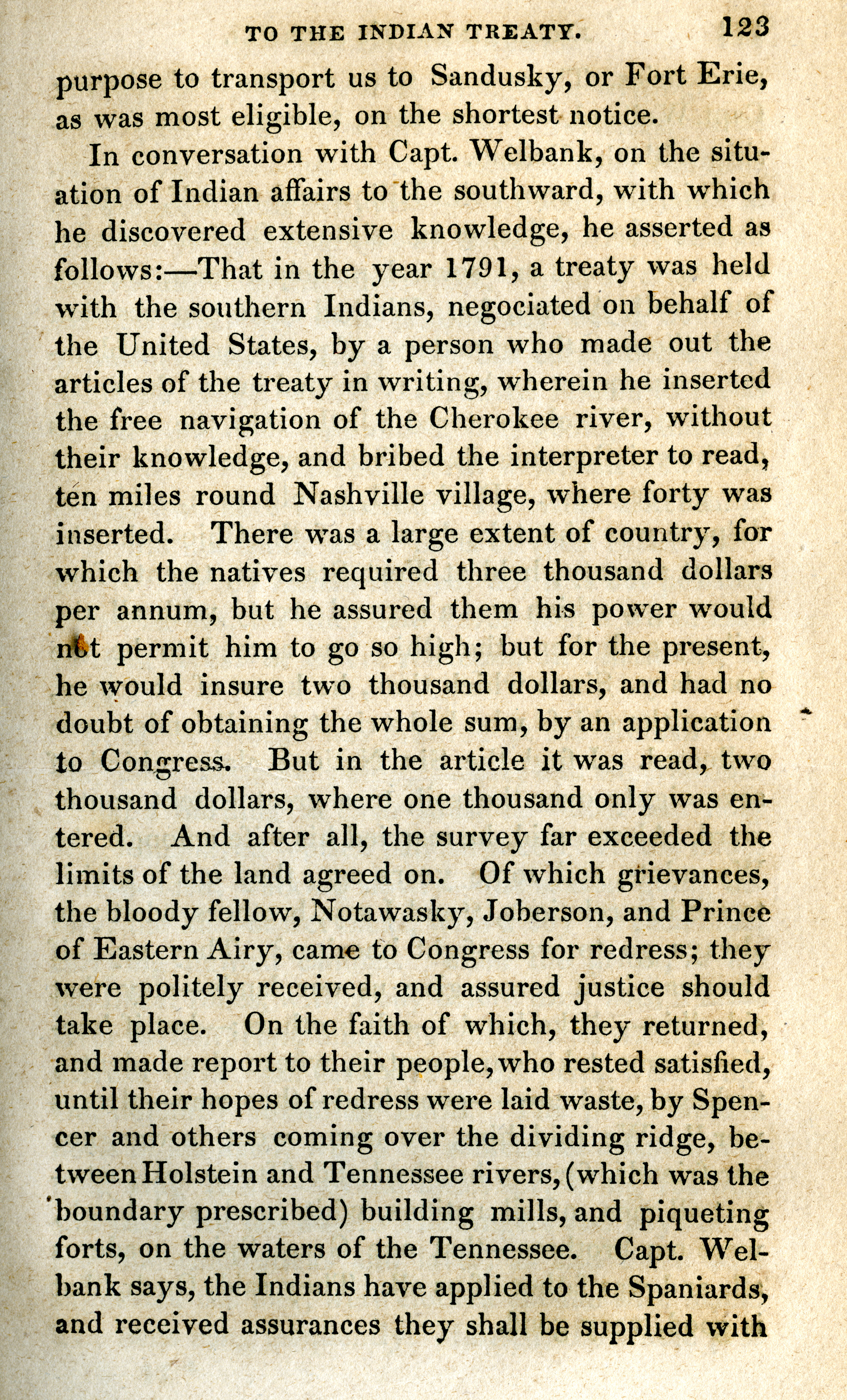purpose to transport us to Sandusky, or Fort
Erie,
as was most eligible on the shortest notice.
In conversation with Capt. Welbank, on the
situ-
ation of Indian affairs to the southward, with which
he discovered
extensive knowledge, he asserted as
follows: — That in the year 1791, a treaty was held
with the southern Indians,
negociated on behalf of
the United States, by a person who made out
the
articles of the treaty in writing, wherein he inserted
the free
navigation of the Cherokee river,
without
their knowledge, and bribed the interpreter to read,
ten miles
round Nashville village, where forty was
inserted. There was a large extent of country, for
which the natives
required three thousand dollars
per annum, but he assured them his power
would
not permit him to go so high; but for the present,
he would insure
two thousand dollars, and had no
doubt of obtaining the whole sum, by an
application
to Congress. But in the article it was read, two
thousand
dollars, where one thousand only was en-
tered. And after all, the survey
far exceeded the
limits of the land agreed on. Of which grievances,
the
bloody fellow, Notawasky, Joberson, and Prince
of Eastern Airy, came to
Congress for redress; they
were politely received, and assured justice
should
take place. On the faith of which, they returned,
and made
report to their people, who rested satisfied,
until their hopes of redress
were laid waste, by Spen-
cer and others
coming over the dividing ridge, be-
tween Holstein and Tennessee rivers,
(which was the
boundary prescribed) building mills, and piqueting
forts,
on the waters of the Tennessee. Capt. Wel-
bank says, the Indians have applied
to the Spaniards,
and received assurances they shall be supplied with

